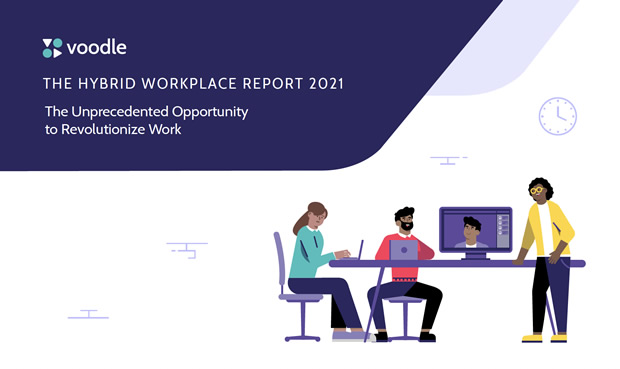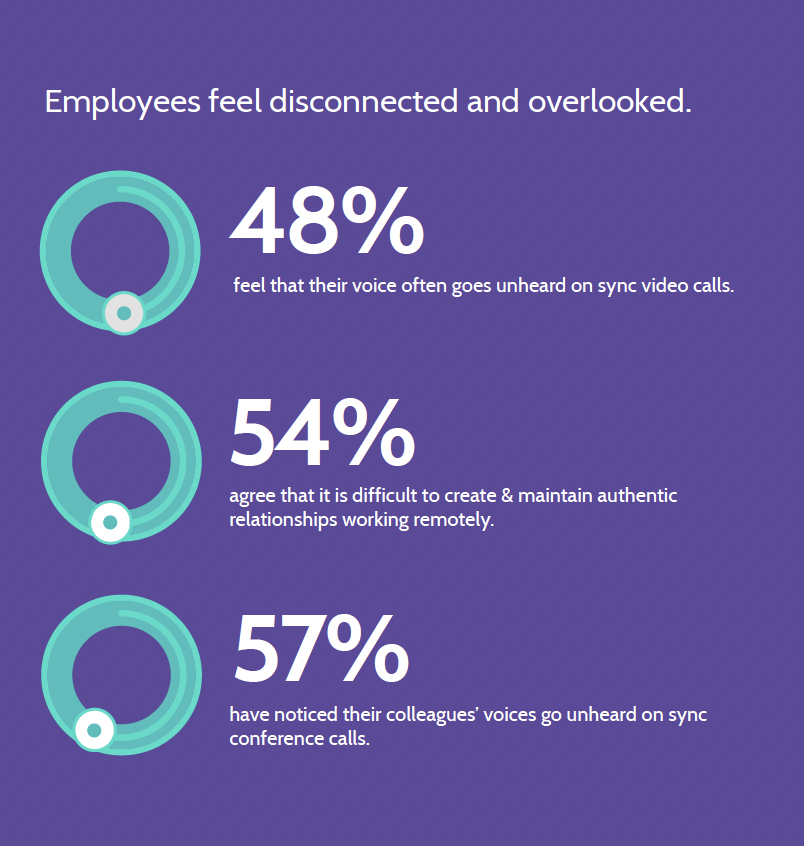Thank you for attending my presentation today!
The Hybrid Workplace Report 2021
The Unprecedented Opportunity to Revolutionize Work

As knowledge workers worldwide settled into makeshift home offices last year, companies were relieved to see business continue with fairly minimal disruption. Most companies saw their employees achieving — and sometimes even exceeding — pre-pandemic productivity levels. With a new understanding of the value of flexible work, many companies are embracing a hybrid workplace model as vaccines pave the way for a return to the office.
Knowing remote work is here to stay, we were curious about the ripple effects of employees primarily interacting and collaborating via video conferencing and text-based chat platforms. So we launched a survey and teamed with Dr. Britt Andreatta, an internationally recognized thought leader who calls upon brain science-based solutions to help unlock the best in people and organizations.
In collaboration, we produced this comprehensive report to shed light on the experiences and preferences of 800 remote workers in the technology industry, including C-level executives and professionals in marketing, sales, engineering, finance, and HR. It’s an eye-opening look into:
- The ways employees are both thriving and struggling with remote work
- What matters now in a company culture
- The keys to building a successful hybrid work model
We hear promises of more inclusiveness, flexibility, collaboration, and productivity enabled by the new hybrid workplace. But the remote-work experiment has exposed major cracks in the foundations of company cultures and workplaces. Download this report to understand the five pressing issues threatening to undermine hybrid workplace plans.
Then explore three immediate strategies you can use to bridge the pitfalls and promises of hybrid work.
Getting inclusion & belonging right matters more than ever.
Calls for inclusion and belonging grow louder as remote setups amplify the sense of being marginalized.
Even if your company scores high marks when it comes to Diversity, Equity, and Inclusion (DEI), your hybrid workplace strategy demands immediate attention. Building an inclusive culture is not easy — and it’s even harder when your teams are distributed.
Now’s the time to take a hard look at the experience of those outside your company’s inner circle. Your employees expect you to treat inequities seriously. And the social injustice conversations happening around the country might very well speak to what’s happening in your organization.
Inclusion and belonging are foundational Employees feel disconnected and overlooked. to a workplace of engaged, productive employees. Here’s why.
Think about your most fulfilling personal relationships. In a thriving, healthy relationship, people feel safe to share their full, authentic selves. The same is true for your employees. Unfortunately, not all employees feel that way. And the work-from-home experiment has only exacerbated that sentiment.

Concern about not belonging can drive employees to hide parts of themselves they fear will be detrimental to their success. While no demographic is exempt from such worries, this anxiety tends to impact historically marginalized groups to a greater degree. Of note, during the pandemic, Black and U.S. Latinx workers in the U.S. reported bigger challenges than the broader population in building relationships, feeling included, and bringing their authentic selves to work.


